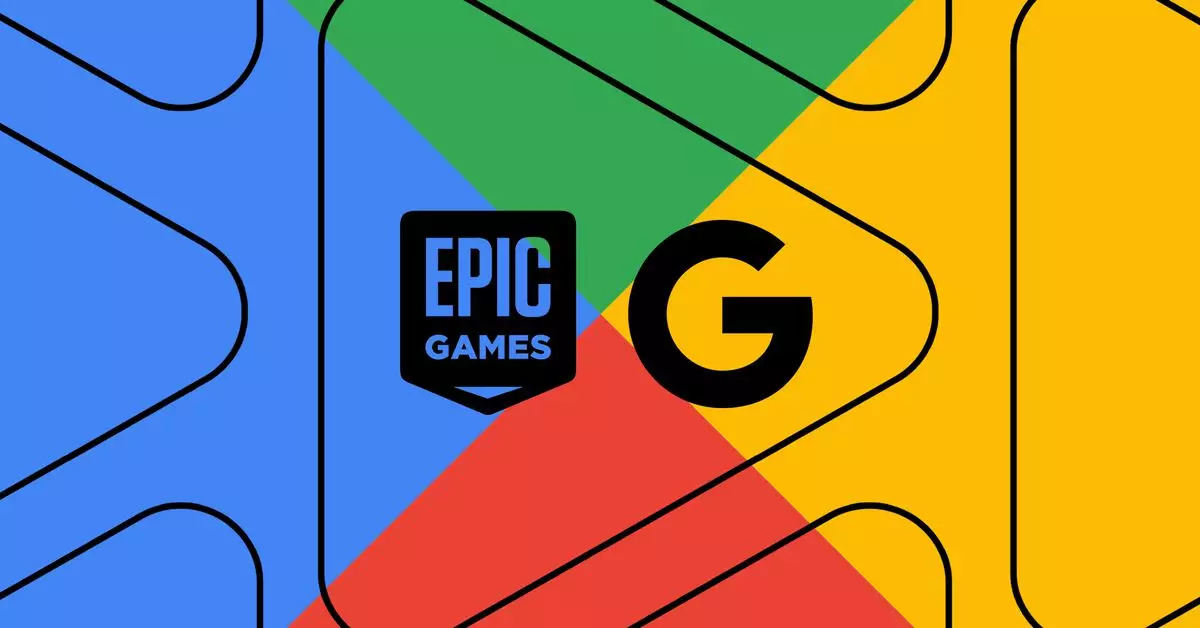In a move that could significantly alter the mobile gaming landscape, Telefónica, one of the leading telecommunications firms, has announced a strategic partnership with Epic Games to preinstall the Epic Games Store on compatible Android devices. This decision could reshape how mobile games—and potentially non-gaming applications—are accessed and distributed on smartphones. By understanding the implications of this collaboration, we can gain a clearer perspective on the evolving dynamics between app stores, telecommunications, and game developers.
Telefónica operates under the O2 and Movistar brands across key markets such as Spain, Germany, the UK, and Latin America. This alliance marks a pivotal moment in the ongoing struggle against Google’s dominance in the app distribution space. By embedding the Epic Games Store into new Android devices, Telefónica is not just making a bold statement; it is actively challenging the status quo set by Google Play. With millions of devices at its reach, Telefónica’s preinstallation of a rival app store symbolizes a significant shift in mobile strategy and could provide users with a wider range of gaming options.
Epic Games, known for its hit title Fortnite, has been vocally critical of Google’s monopoly over app distribution on Android. The court ruling in Epic v. Google that declared Google’s practices as monopolistic only adds fuel to this fire. By entrenching the Epic Games Store on smartphones, Telefónica and Epic are positioning themselves as allies in a struggle that seeks to empower consumers and developers alike, providing a viable alternative to Google Play.
While the immediate focus is on mobile gaming with the launch of Fortnite through the Epic Games Store, this partnership has the potential to evolve beyond just games. The Epic Games Store has the capability to host a variety of applications, expanding its offerings to compete with Google Play directly. This diversification not only enhances consumer choice but also opens the door for developers looking for alternative platforms to distribute their applications without facing excessive fees and restrictions that may come from the Google ecosystem.
Historically, Epic Games has tried to circumvent Google’s control by negotiating with manufacturers and carriers to preinstall Fortnite or alternative installers. However, these initial attempts were met with mixed results as partnerships fell through due to alleged pressure from Google. Telefónica not only recognized the long-term potential of this partnership but also acted independently, unshackling itself from the kind of arrangements that have hindered other companies.
The Implications for Samsung and Other Manufacturers
Samsung, as one of the primary players in the Android market, may have mixed feelings about Telefónica’s partnership with Epic. While the deal presents new opportunities for gamers and app developers, it could also disrupt Samsung’s pre-existing ecosystem, particularly with their own Galaxy Store. Epic’s ongoing litigation against Samsung highlights the tensions present in the industry, making it crucial for Samsung to strategize its responses amid these changing dynamics.
Moreover, with this preinstallation becoming a reality, other phone manufacturers might reevaluate their stances regarding preinstalled applications, especially those facing pressure from Google. It brings into question how other device manufacturers, who have hesitant partnerships with Epic in the past, will approach future deals and user experience on their devices.
Telefónica’s groundbreaking decision to preinstall the Epic Games Store signifies a pivotal evolution in mobile application distribution. Not only does it challenge Google’s long-held monopoly, but it also sets the stage for a broader exploration of how users interact with apps on their phones. With Epic Games positioning itself as a formidable competitor to Google Play, the stakes have been raised for both consumers and developers in this rapidly changing digital landscape.
As this partnership unfolds, it will be essential to monitor its impact not only on app distribution but also on the consumer experience, developer freedom, and the overall inclusivity of app marketplaces. If successful, this collaboration could incentivize further moves by other carriers and manufacturers, ultimately redefining what users can expect from their mobile devices. The fight for a more equitable digital marketplace has only just begun.


Leave a Reply